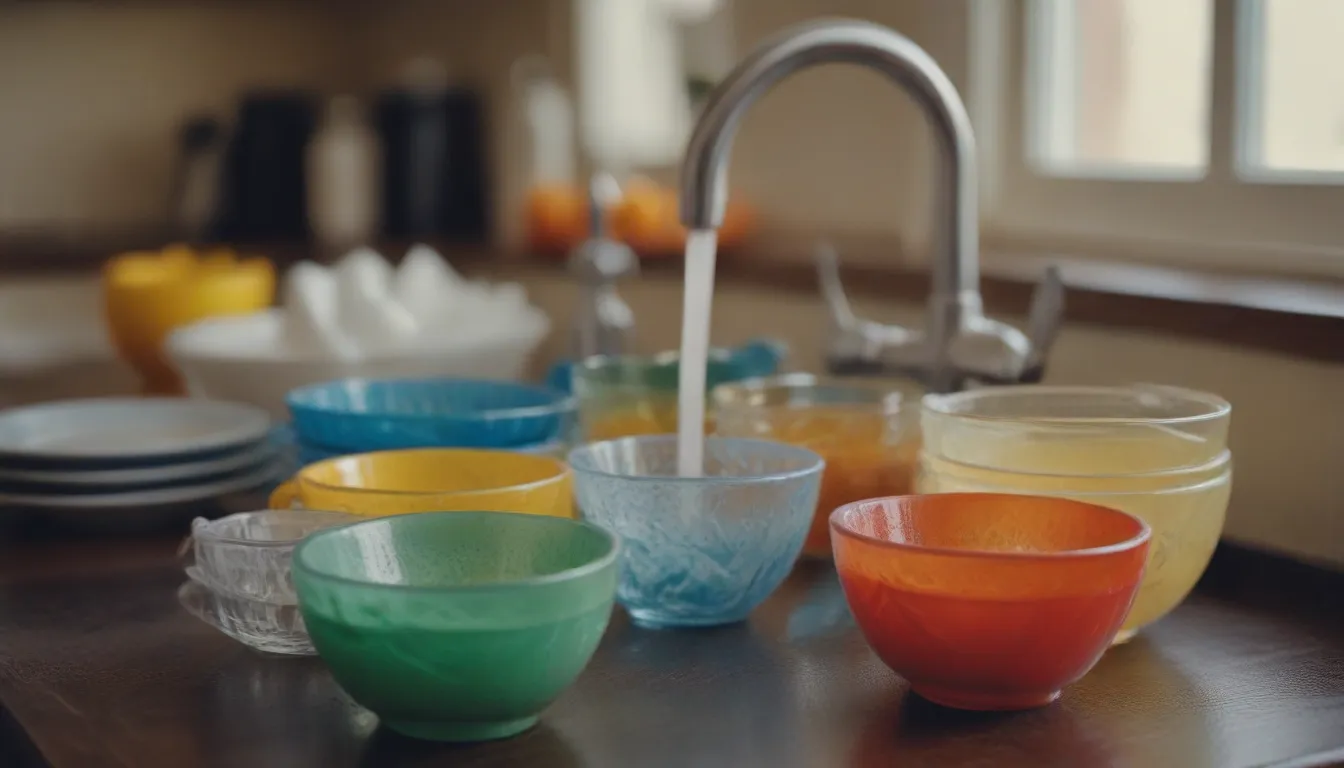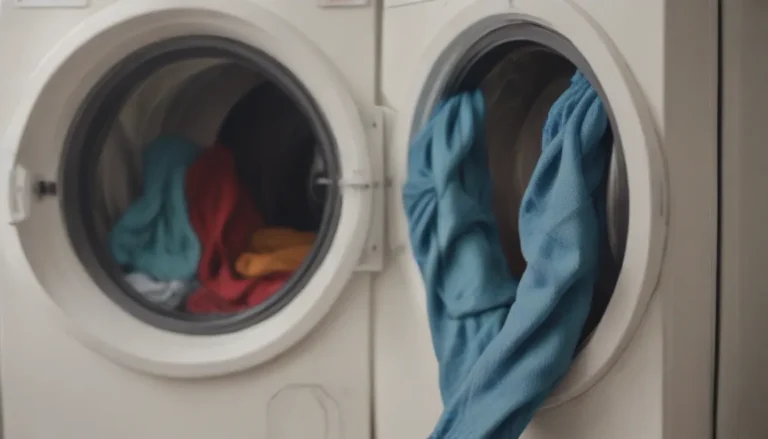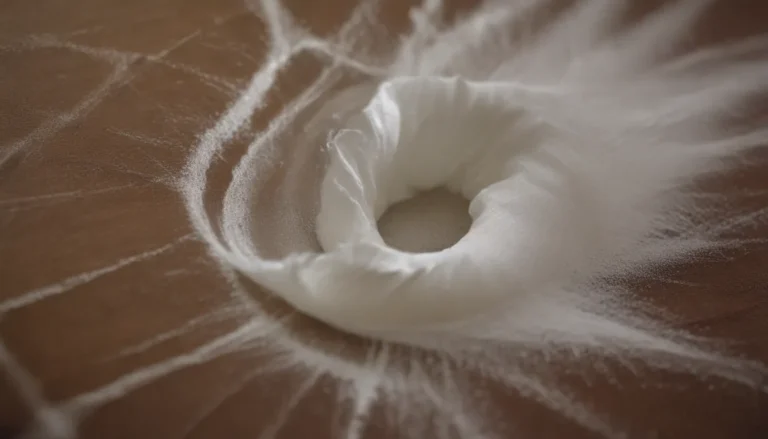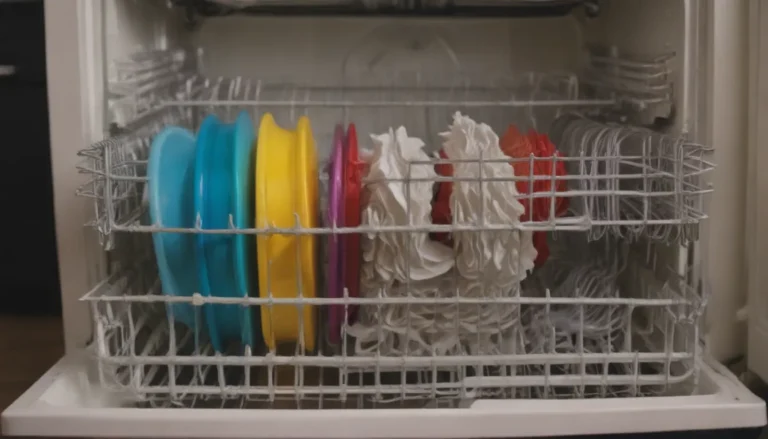The Benefits of Washing Dishes with Hot Water

Are you someone who prefers washing dishes in cold water? While it may get the job done, it’s worth considering the numerous benefits that come with using hot water instead. Hot water not only cleans dishes more effectively but also helps to sanitize them, cut down on drying time, and prevent various issues such as water spots and cloudy glasses.
If you’re looking to step up your dishwashing game, here are 12 reasons why you should switch to hot water:
Reasons to Make the Switch to Hot Water When Washing Dishes
Hot Water Cuts Grease
- Hot water is more effective at cleaning greasy dishes compared to cold water. Cooking oils and fats solidify when cold, making them harder to remove. Soaking greasy dishes in hot water with dish soap helps to dissolve the grease more easily.
The Heat Reduces Drying Time
- When rinsing dishes in hot water, they tend to dry more quickly than when using cold water. This means you can skip the step of hand-drying your dishes, saving you time and effort.
You’ll Cut Down on Water Spots
- Hot water dries faster than cold water, reducing the likelihood of water spots and streaks on your dishes and glasses. Hard water can leave mineral deposits when it dries, but the quicker drying time with hot water minimizes this issue.
Heat Can Kill Germs
- Hot water can help to kill bacteria and other microorganisms on your dishes. While the temperature needed for sanitization may be too hot for your hands to handle, using hot water can still help in reducing germs on your dishes.
Dish Soap Works Better in Hot Water
- Many dish soaps, especially powdered detergents, work more effectively in hot water. The heat helps to dissolve the soap, allowing it to coat your dishes better as you scrub.
You’ll Use Less Soap
- Hot water enhances the effectiveness of dish soap, meaning you can use less of it. You’ll save on product costs while still achieving the same level of cleanliness on your dishes.
You’ll Avoid Cloudy Glasses and Dishes
- Using too much soap in dishwashing water can result in cloudy glasses and dishes. Hot water helps to break down the soap residue more easily, preventing cloudiness.
Hot Water Helps to Prevent Food Stains
- Hot water aids in dissolving food stains on dishes, similar to how it helps with stained clothes. The trick is to soak the dish in hot water promptly to minimize the amount of scrubbing required.
Hot Water Can Lift Sticky Foods
- Sticky foods like jelly and honey become easier to remove when warmed up with hot water. The heat helps to thin out sticky substances, making them simpler to wash away.
You’ll Be Less Likely to Damage Dishes
- Allowing dishes to soak in hot water can help to loosen stubborn stains and stuck-on food, reducing the need for aggressive scrubbing that may damage your dishes.
You’ll Likely Save Water
- Hot water can blast away grease and food particles more effectively, potentially reducing the amount of water needed for washing dishes compared to using cold water.
You Won’t Freeze Your Hands
- Hot water may not be comfortable on the skin, but washing dishes in icy water isn’t pleasant either. Using warm dishwashing water can provide a more comfortable experience without freezing your hands.
Water Temperature for Hand-Washing Dishes
When washing dishes by hand, it’s important to note that using water that’s too hot can scald your skin without providing significant sanitization benefits. Warm water is typically sufficient for hand-washing dishes, as it can effectively remove grime and grease while being more comfortable to work with.
If you’re dealing with tough stains, warm water can still be effective in loosening debris. Additionally, warmer water helps dishes to dry more quickly, which can prevent issues like mineral deposits and water spots.
Tips for Cleaner Dishes
To ensure your dishes are sparkling clean and sanitized, consider the following tips:
-
Optimal Temperature: Aim to wash dishes at a temperature of at least 160 degrees Fahrenheit for effective sanitization, as recommended by the FDA.
-
Drying: Hot water is best for rinsing dishes, as it helps them dry faster. This can potentially eliminate the need for hand-drying, saving you time.
-
Prevent Bacterial Growth: Wet dishes can promote bacterial growth and lead to food-borne illnesses. Be sure to dry your dishes completely before storing them to avoid these issues.
By making a few simple adjustments to your dishwashing routine, such as using hot water and following these tips, you can achieve cleaner, sanitized dishes with less effort.
In times of emergency, such as natural disasters or water contamination, it’s crucial to ensure the safety of your water supply. The Centers for Disease Control and Prevention and the U.S. Food and Drug Administration provide guidelines on making water safe for consumption in challenging situations.
In conclusion, while washing dishes in cold water is doable, using hot water offers a range of benefits that can enhance the cleanliness and sanitization of your dishes. By making the switch to hot water and incorporating these tips into your dishwashing routine, you can enjoy cleaner, spot-free dishes with less effort.





